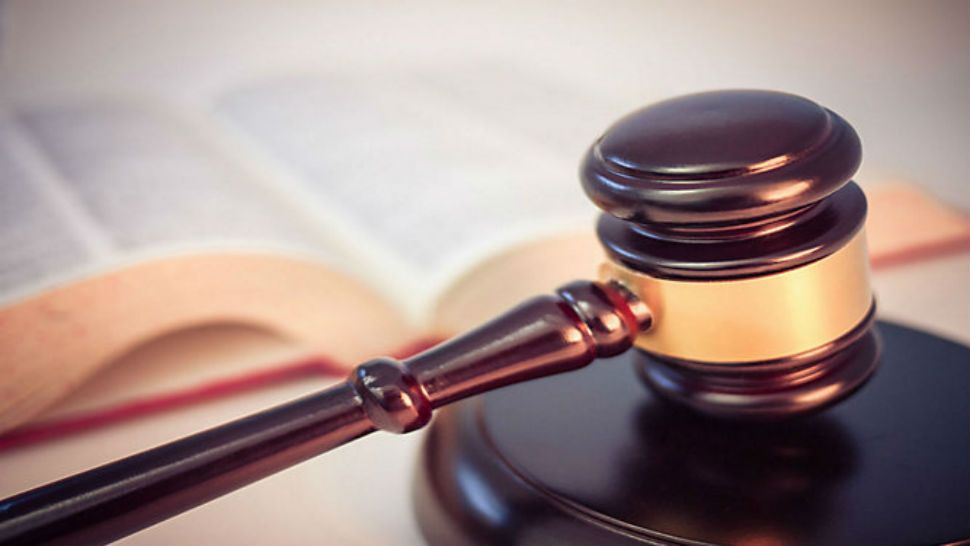ORLANDO, Fla.-The Brevard County Commission on Monday lost another legal battle over their policy of selecting speakers for meeting invocations that critics call discriminatory and unconstitutional.
- Appeals court sides with Orlando federal judge's 2017 ruling
- Brevard's invocation selection process favors "monotheistic religions"
- The process "categorically excludes" other religions
The U.S. Court of Appeals for the 11th Circuit issued a 45-page ruling slamming Brevard County Commissioners for favoring “mainstream” religious individuals when picking speakers to give opening statements before public meetings.
Brevard County favors certain monotheistic religions and categorically excludes from consideration other religions solely based on their belief systems.
"Brevard County’s process of selecting invocation speakers thus runs afoul of the Establishment Clause," the court said. The U.S. Consitution prohibits the government from "establishing" a religion.
Some religions are scrutinized by commissioners more closely than others and some are “categorically excluded,” according to a ruling from the Atlanta-based court.
“Secular humanists are far from the only group viewed with disfavor,” the court said. “Thus, for example, some of the Commissioners and former Commissioners have testified unambiguously that they would not allow deists, Wiccans, Rastafarians, or, for that matter, polytheists to deliver prayers, and that they would have to think long and hard before inviting a Hindu, a Sikh, or a follower of a Native American religion.”
The ruling upholds a decision from the U.S. District Court for the Middle District of Florida in September 2017, agreeing with plaintiffs that commissioners’ practice of excluding nontheists violated the U.S. Constitution.
“Brevard County Commissioners were using religion as the basis for discrimination by allowing only people of preferred faiths to offer invocations,” Alex J. Luchenitser, the lead counsel for the plaintiffs, said in a statement..
“Religious minorities and nonbelievers are equal members of society and they must be treated equally by their elected officials,” said Luchenitser, associate legal director at Americans United for Separation of Church and State. “The court’s decision today made clear that no one should be excluded from civic affairs because of their beliefs about God.”
Messages to Brevard County Commissioners on Monday were not immediately returned.
In 2014, commissioners re-affirmed their policy of faith-based invocations at the beginning of commission meetings.
A year later, as the policy came under fire, the board discussed, and later approved, a clarification proposed by Commissioner Curt Smith.
“The board wishes to formalize a policy on invocations that is not hostile to faith based religions, and that does not endorse secular humanism, or non-belief of traditional faith based religions, comprised of constituents who believe in God,” Smith said.
Later, Smith defended the new policy, saying secularists can still speak at public meetings - but only in the public comment portion, not the invocation.
The plaintiffs include David Williamson, director of the Freedom From Religion Foundation’s Central Florida Freethought Community.
“Williamson v. Brevard County was filed in 2015 to challenge the Brevard County Board of County Commissioners’ unconstitutional policy of excluding nontheists from delivering invocations at board meetings — an opportunity that is offered only to citizens with favored monotheistic beliefs,” a news release from Freedom From Religion Foundation said.
Other plaintiffs include the Space Coast Freethought Association and its president, Chase Hansel and the Humanist Community of the Space Coast and its president, Keith Becher. Brevard County resident Ronald Gordon is also suing.
U.S. District Judge John Antoon II sided with the plaintiffs in a fall 2017 ruling, agreeing that Brevard's invocation-selection process violates the U.S. Constitution and the Florida Constitution. However, the U.S. Court of Appeals for the 11th Circuit overturned an injunction by Antoon to force Brevard County to give atheists and secular humanists an opportunity to deliver invocations.
"The trial court’s injunction goes too far and says too much. Again, all that we hold today is that the Board’s current invocation speaker selection procedures are unlawful," the higher court said.
After Antoon's 2017 decision, Brevard opted for moments of silence instead of invocations as they appealed his ruling.
The appeals court also sent the case back to Antoon.
"The law is abundantly clear that the County may allow sectarian prayer at the start of its legislative sessions, just as the Supreme Court approved prayer..." in other cases, the ruling states. "But the County may not employ a discriminatory selection process in doing so."



